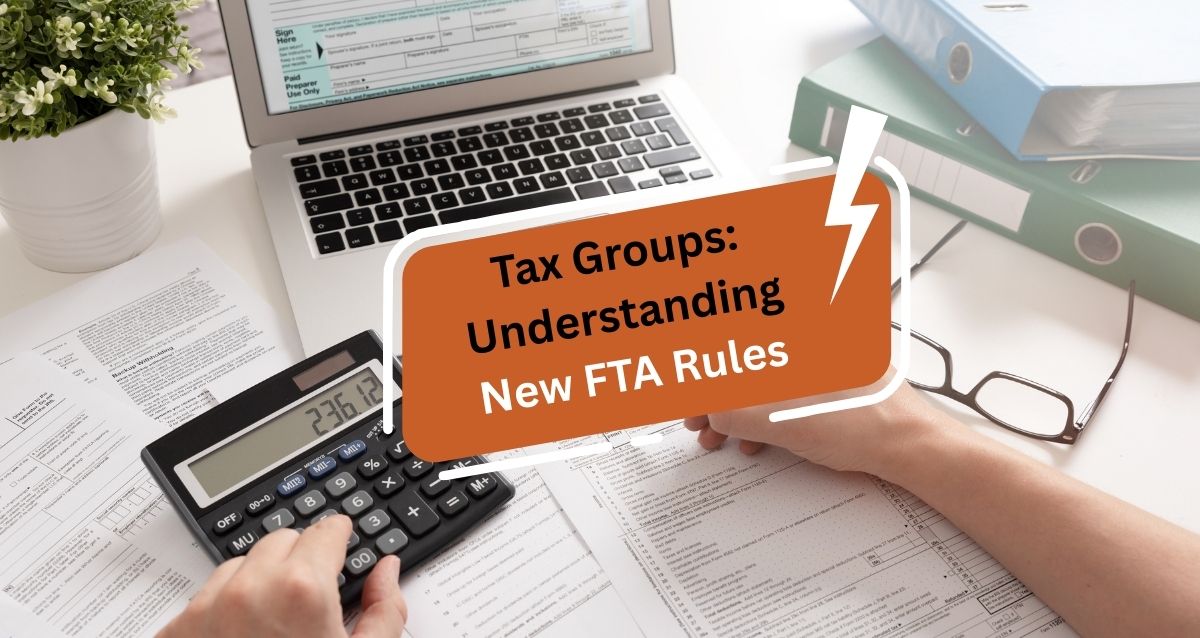Understanding the New FTA Rules for Audited Special Purpose Financial Statements for Tax Groups
FTA Decision No. 7 of 2025 by the Federal Tax Authority (FTA) presents clear guidelines on the procedures of preparing and maintaining audited special purpose financial statements of tax groups in the United Arab Emirates.
This decision is also important to the businesses that operate as a tax group under the UAE Corporate Tax Law (Federal Decree-Law No. 47 of 2022) and which is to be effective on tax periods beginning on or after January 1, 2025.
This recent case can help clear up the requirements of putting together your aggregated financial statements, what should and should not be included, and when it should be done, in the event that your business is a member of a tax group.
Here is where we shall explain the decision in plain terms so that you will know what is expected of you in this article.
1. What is this decision about?
A tax group company must ensure that, under the Corporate Tax legislation of the UAE, in case of a tax group, it is obliged to send financial statements with respect to the tax group as a whole and not on each company.
The FTA, as per International Standards on Auditing (ISA), requires such statements now to be prepared in a format that is special format, known as Aggregated Financial Statements, and it is to this format that the audit should be undertaken.
This is to ensure that there is conformity and clarity in the disclosure of the tax groups regarding their finances, profits and losses.
2. Key definition – What are Aggregated Financial Statements?
In simple terms, financial statements of all businesses in the tax group, as well as the parent company, are consolidated into aggregated financial statements.
However, the rules are not the same as the ones of consolidation according to the usual IFRS group accounting:
- Financial statements of all the businesses in the tax group are combined.
- The balance sheets of all the businesses in the tax group are totalled up.
- Intergroup accounting is cancelled between members of the group in order to eliminate the possibility of the sales, loans or expenditures counting the same transaction two times.
- This does not exclude certain adjustments (such as goodwill or fair value changes) which are required in IFRS consolidated accounts.
3. Main requirements under the new FTA decision
Here’s what each tax group must do is as follows:
a) Prepare Aggregated Financial Statements
- Compile each group member's independent financial statements.
- Adhere to the structure specified in Article 3 of the ruling (described in Section 4 below).
b) Have them audited
The combined statements need to be audited in accordance with ISA standards under a special purpose framework.
c) Submit them on time
Within nine months of the conclusion of the applicable tax period (or another date if the FTA specifies one), you must deliver the audited aggregated statements to the FTA.
4. How to prepare Aggregated Financial Statements?
The ruling offers a detailed framework:
Step 1: Use the standalone statements as your base
- Start by looking at each tax group member's financial statements for the pertinent fiscal year.
- IFRS or IFRS for SMEs must be followed in the preparation of these.
Step 2: Apply specific adjustments
Some of the crucial guidelines are:
- No business combination adjustments: Unless the combination did not involve acquiring a separate legal entity, do not apply the standard IFRS 3 and IFRS 10 adjustments for consolidation, such as goodwill, fair value changes if a company has acquired another within the tax group.
- Include all assets and liabilities for certain acquisitions: The assets, liabilities and goodwill are fully included in the acquiring entity's statements if the combination was made without acquiring a distinct legal entity.
- Line-by-line aggregation: Without eliminating any investments or equity balances between group members, all statement items, assets, liabilities, revenues, expenses and equity are added.
- Impairments are not eliminated: An impairment recorded by the parent or a subsidiary on its investment in another group member remains in the aggregated statements.
Step 3: Eliminate intra-group transactions
Only external transactions remain after income, expenses and unrealised gains or losses between group members are eliminated.
Step 4: Keep it consistent
- The same accounting rules must be followed by every member
- Pre-tax profit or loss should be reflected in aggregated figures.
- Investments made in non-tax group entities must be reported at cost less impairment.
- Provide your final statements in UAE Dirhams.
5. What needs to be included in the aggregated statements?
The following should be included in your collection of combined financial statements:
- Aggregated statement of financial position, balance sheet
- Aggregated statement of profit or loss
- Aggregated statement of other comprehensive income
- Aggregated statement of changes in equity
Additionally, you need to provide disclosures that clarify:
- The statements were prepared using this framework.
- The aggregation method.
- The main accounting rules, calculations and decisions were applied.
- Explanatory notes that back up the displayed figures.
6. What happens if a company leaves the tax group?
The ruling also clarifies how a business will be treated if it leaves the tax group or if the group disbands:
- The departing company's standalone statements must reflect the same asset and liability values from the group's aggregated statements.
- If this is not permitted by accounting standards, the business must compute its taxable income as if it did.
This prevents asset value manipulation for tax purposes and guarantees a seamless transition.
7. Timeline for compliance
Tax periods beginning on or after January 1, 2025, are covered by this ruling. This implies that your first set of audited aggregated financial statements is due on September 30, 2026, for the majority of businesses with a calendar-year reporting period.
Planning is essential to start immediately, especially when:
- The members of your group operate under different accounting systems or policies.
- Currently, you do not make global statements throughout groups that are in an appropriate format.
- Your audit procedures should be revised in order to be aligned with the special purpose framework.

8. Why this matters for UAE businesses
This changes many tax groups significantly. In the past, certain groups might have used their consolidated IFRS financials to determine taxation. The FTA now seeks a more suitable strategy to better represent the taxable position of the group.
This modification will:
- Raise the FTA's degree of transparency.
- Demand that the finance departments of all group companies work together more closely.
- Possibly have an impact on the way profits and losses are reported for taxation.
Noncompliance with the new regulations can result in:
- Tax filing delays.
- Administrative sanctions.
- More FTA scrutiny.
9. Practical steps to get ready
Here's how your company can get prepared for it:
1. Examine your tax group configuration.
You must verify the items of your tax group and whether this group anticipates changes.
2. Align accounting guidelines
Make sure all the group members applied the same IFRS or IFRS for SMEs.
3. Make plans for eliminations within the group.
In order to get transactions between the group members wiped out of the combined statements, find and track them.
4. Early coordination with auditors
Since the special-purpose audit framework does not resemble normal audits, your auditors will need time to plan and test new procedures.
5. Use uniform reporting formats.
Create templates that should be able to meet the disclosure standards of the FTA.
6. Establish internal due dates
Filing your combined statements early is important, preferably before the nine-month FTA deadline.
10. Final thoughts
The UAE is undertaking another step to improve the corporate compliance of the taxation regulatory system on the FTA Decision No. 7 of 2025.
Although complex in nature at the beginning, new requirements to have audited aggregated financial statements are expected to ensure honest and justifiable tax reporting across all the tax groups.
By knowing the regulations ahead of time and preparing your procedures in advance, you can avoid last-minute surprises and work toward hassle-free adherence in light of the Corporate Tax Law.
It is important to seek professional consultation when you are part of a tax group in the UAE and do not understand in what ways your company will be impacted by such changes.
- Aware of the new rules.
- Prepare your consolidated statements.
- Arrange your audits by FTA.
To learn more about Tax Groups: Understanding New FTA Rules, book a free consultation with one of the Flyingcolour team advisors.
Disclaimer: The information provided in this blog is based on our understanding of current tax laws and regulations. It is intended for general informational purposes only and does not constitute professional tax advice, consultation, or representation. The author and publisher are not responsible for any errors or omissions, or for any actions taken based on the information contained in this blog.



